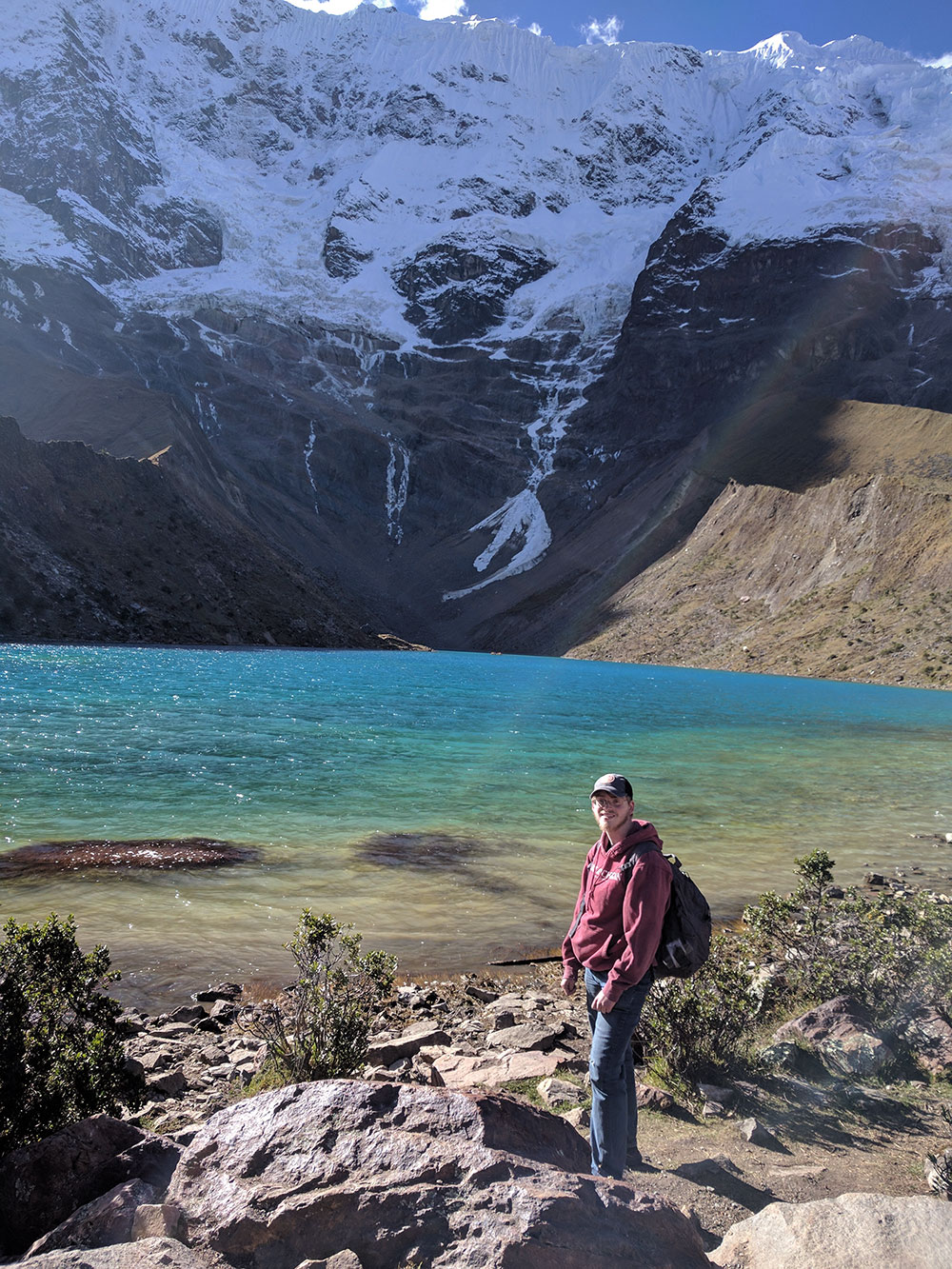Cultural Immersion in Chile with a Gilman Scholarship

Jacob Martin traveled to Santiago, Chile on a Gilman scholarship, participating in a program at Pontificia Universidad Catolica de Chile from February to July 2017. The Benjamin A. Gilman International Scholarship for study or intern abroad programs opens in mid-January 2020 with a deadline of March 3, 2020 for travel beginning fall 2020.
Until I got the Gilman Scholarship, I did not think I would be able to go abroad, but I still went to the study abroad fair on the drillfield. As I’m a Spanish major and Mechanical Engineering major, I found two options to go to a Spanish-speaking program with engineering: I chose a third-party program in Chile run by Butler University where I could live with a host family. I learned about the Gilman from a previous scholar who was working at the Global Education Office as a peer advisor. They will sit down with you and lay out financial and program options—they can help wherever you want to go. All of a sudden, I had two weeks to get my application together that fall. I went down to Santiago in February and began taking engineering classes in Spanish. I wanted the full immersion experience.

I still miss the mountains. Anywhere you were in Santiago, you could see the mountains on the horizon. I would bike to campus or take the metro. It was definitely a city feel, with a lot of skyscrapers downtown and different metro routes on top of a bus system. You could find a ton of street food, including sopaipillas. In the winter months, I ate a lot of dishes with garbanzo beans with my host family. With ten other students in the program, I explored the city of Santiago, visited the coastal port city of Valparaiso. I also went down to Patagonia for three days with my dad. At the end of the semester, we did a five-day trek on the Salkantay trail to Machu Picchu, Peru.
When I came back to the United States, I had some reverse culture shock: everyone was go go go again. On Sundays, everything would shut down in Santiago. Also, my perspective had changed. I thought I had to stay on track to graduate in four years. I know a lot of people don’t want to hear this: that’s just not the case. Doing a study abroad or a co-op or working abroad or research in another school, many options do not add semesters of tuition. I know a friend who did research and took classes in Dublin. With my co-op I didn’t have to worry about tuition—in fact I got paid and used that to pay tuition. Plus, I have experience on my resume I can talk to employers about.

It was great to bring my study abroad experience back—I knew I could move and meet new people and get along. I moved to Chattanooga, TN to take a co-op position at USG corporation in Alabama, a drywall and building construction firm. Drawing on my experience managing culture shock, that summer I formed a good friend group from work and made sure I had stuff to do on the weekends. I went from mountain trekking in Chile to climbing outside in Tennessee. A lot of the cultural excursions in Chile were focused on nature and being outside. In Peru, one of the big elements was Pachamama, or Mother Nature.
As a Project Engineer for a summer and fall semester, I did the tasks at USG that a regular project engineer does: scoping and implementing improvements around the plant and a lot of procurement and problem-solving. Now that I am back on campus, I’m a student leader in the FASER lab, preparing projects for prototyping. I organize and manage procurement, applying the skills practiced during my co-op.
All images from Jacob Martin.




